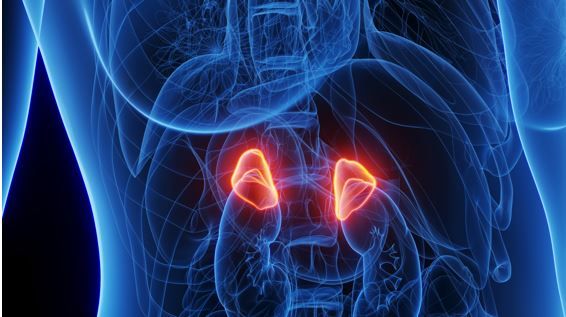- Clinical Technology
- Adult Immunization
- Hepatology
- Pediatric Immunization
- Screening
- Psychiatry
- Allergy
- Women's Health
- Cardiology
- Pediatrics
- Dermatology
- Endocrinology
- Pain Management
- Gastroenterology
- Infectious Disease
- Obesity Medicine
- Rheumatology
- Nephrology
- Neurology
- Pulmonology
One-Quarter of Adults with Difficult-to-Control T2D have Hypercortisolism, According to New Data
ADA 2024. Adults using more antihypertensive medications had higher odds for hypercortisolism, according to new data from the CATALYST phase 4 study.

Nearly one-quarter of adults with difficult-to-control type 2 diabetes (T2D) also have hypercortisolism, and treating hypercortisolism may also benefit glycemic control in those with both conditions, according to new research.1
Findings come from part 1 of the 2-part CATALYST phase 4 clinical trial, which were presented at the American Diabetes Association’s (ADA) 84th Scientific Sessions, June 21-24, in Orlando, Florida.
“Until now, hypercortisolism has been widely regarded as extremely rare. But that turns out not to be true. These results show that hypercortisolism among patients with difficult-to-control type 2 diabetes is much more common than previously assumed and is likely the underlying cause of diabetes in many cases,” CATALYST coauthor Ralph DeFronzo, MD, chief, diabetes division, professor of medicine, UT Health San Antonio, said in a press release.“These insights should lead to expanded screening for hypercortisolism, more effective treatment and better health outcomes for patients who are struggling today."2
Hypercortisolism can worsen T2D, however, research is lacking on the prevalence of the disorder in this population. In part 1 of the CATALYST trial, the largest prospective study of its kind, DeFronzo and colleagues examined the prevalence of hypercortisolism in 1055 patients with difficult-to-treat T2D across 36 sites in the US. For the purpose of the study, difficult-to-treat T2D was defined as hemoglobin A1c levels between 7.5% and 11.5% despite taking diabetes medication, including glucagon-like peptide-1 receptor agonists.2
Investigators used an overnight 1 mg dexamethasone suppression test (DST) to detect hypercortisolism, defined by a post-DST morning cortisol level above 1.8 µg/dL with dexamethasone level of 140 ng/dL or higher.1
According to researchers, 24% of participants had hypercortisolism. Among patients receiving 3 or more hypertension drugs, the prevalence of hypercortisolism was approximately 1 in 3. Also, CT scans showed one-third of participants had adrenal abnormalities, with a quarter having an adrenal tumor.1
“These results are significant as they highlight a previously underrecognized factor contributing to the barriers when it comes to managing type 2 diabetes,” lead investigator John Buse, MD, PhD, of the University of North Carolina School of Medicine Diabetes Center, said in an ADA press release. “By identifying hypercortisolism in these patients, we can target treatments more effectively and potentially improve their outcomes.”3
Participants in the first part identified as having hypercortisolism and satisfied additional screening criteria were eligible to enter the second part of the CATALYST study which is ongoing. Part 2 participants were randomly assigned in this treatment phase 2:1 to receive treatment with the progesterone blocker mifepristone or placebo. Researchers will evaluate whether treatment with mifepristone can improve diabetes management and improve related health issues. Results from this phase are expected to be available by the end of 2024.2,3
References:
- Buse JB, DeFronzo RA, Busui R, et al. Symposium – Prevalence of hypercortisolism in difficult-to-control type 2 diabetes. Presented at: American Diabetes Association Scientific Sessions; June 21-24, 2024; Orlando.
- Corcept announces presentation of results from prevalence phase of CATALYST clinical trial at American Diabetes Association’s Scientific Sessions. News item. Corcept. June 24, 2024. Accessed June 25, 2024. https://www.biospace.com/article/releases/corcept-announces-presentation-of-results-from-prevalence-phase-of-catalyst-clinical-trial-at-american-diabetes-association-s-scientific-sessions/
- One in four patients with difficult-to-control type 2 diabetes experience high levels of cortisol. News item. American Diabetes Association. June 24, 2024. Accessed June 25, 2024. https://diabetes.org/newsroom/press-releases/one-four-patients-difficult-control-type-2-diabetes-experience-high-levels
